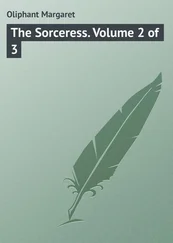Margaret Oliphant - The Cuckoo in the Nest. Volume 2/2
Здесь есть возможность читать онлайн «Margaret Oliphant - The Cuckoo in the Nest. Volume 2/2» — ознакомительный отрывок электронной книги совершенно бесплатно, а после прочтения отрывка купить полную версию. В некоторых случаях можно слушать аудио, скачать через торрент в формате fb2 и присутствует краткое содержание. ISBN: , Жанр: foreign_prose, foreign_language, на английском языке. Описание произведения, (предисловие) а так же отзывы посетителей доступны на портале библиотеки ЛибКат.
- Название:The Cuckoo in the Nest. Volume 2/2
- Автор:
- Жанр:
- Год:неизвестен
- ISBN:http://www.gutenberg.org/ebooks/52756
- Рейтинг книги:3 / 5. Голосов: 1
-
Избранное:Добавить в избранное
- Отзывы:
-
Ваша оценка:
- 60
- 1
- 2
- 3
- 4
- 5
The Cuckoo in the Nest. Volume 2/2: краткое содержание, описание и аннотация
Предлагаем к чтению аннотацию, описание, краткое содержание или предисловие (зависит от того, что написал сам автор книги «The Cuckoo in the Nest. Volume 2/2»). Если вы не нашли необходимую информацию о книге — напишите в комментариях, мы постараемся отыскать её.
The Cuckoo in the Nest. Volume 2/2 — читать онлайн ознакомительный отрывок
Ниже представлен текст книги, разбитый по страницам. Система сохранения места последней прочитанной страницы, позволяет с удобством читать онлайн бесплатно книгу «The Cuckoo in the Nest. Volume 2/2», без необходимости каждый раз заново искать на чём Вы остановились. Поставьте закладку, и сможете в любой момент перейти на страницу, на которой закончили чтение.
Интервал:
Закладка:
He had an interview of a more interesting kind with Margaret before he went away. “I wish you could leave as easily as I do,” he said.
“So do I – but that would be impossible in any case. I have Osy to think of. I must not allow myself to be carried away by any sudden impulse – even if it were for nothing else, for my poor old uncle’s sake. He is fond of Osy. It might chill his poor old clouded life still more to miss the child.”
“Oh, Uncle Giles! I think you may make your mind easy on that point. It’s age, I suppose, and illness. One thing is just as good as another to him.”
“I am not quite of your opinion,” she said.
“I think you are never quite of any one’s opinion except your own,” he retorted, quickly.
“Well, that’s best for me, don’t you think?” she replied, with something of the same flash of spirit, “seeing that I have, as people say, nobody to think of but myself.”
“And the boy? Meg, you have promised me that you will think of what I said about the boy. He should want for nothing. He should have all the advantages education could give, if you would trust him to me – or to my father, if that would give you more confidence.”
“It is not confidence that is wanting,” she said.
“Then, what is it? It cannot be that you think I speak without warrant. My father will write to you. I will pledge myself to you – as if he were my very own. His future should be my care; his education, his outset in the world – ”
Margaret stood looking at him for some time in silence, a faint smile about her lips, which began to quiver, the colour forsaking her cheeks. What she said was so perfectly irrelevant, so idiotic, to the straight-forward mind of the man who was offering her the most unquestionable advantage, and asking nothing but a direct answer – yes, or no – that he could almost have struck her in his impatience. He did metaphorically, with the severity of that flash in his eyes.
“And how there looked him in the face
An angel, beautiful and bright;
And how he knew it was a fiend,
That miserable knight.”
– This was what Margaret said.
“What do you mean?” he cried; “is it I that am the fiend, offering the best I can think of?”
“Oh, the angel,” said Margaret; “and is it my own heart that is the fiend, that makes the other picture? Oh, God help me! I don’t know. My child is my life. But there are things better than life, and that might be given up. Yet, he is my duty, too, and not yours, Gerald. Prosperity and comfort, and your great warm-hearted, honourable kindness; or poverty and nature, and a poor mother – and love? Which would be the best for him? We cannot see a step before us; and the issues are of life and death.”
“It is better not to exaggerate,” he said, with an almost angry impatience. “There need be no cutting off. You should, of course, see the child when you liked, for his holidays and that sort of thing. There’s no question of life or death, but of a man’s career for the boy, under men’s influence, or – I know, I know! You would teach him everything that is good, and put the best principles into him, and sacrifice yourself, and all that. In short, you would make a perfect woman of him, had Osy been a girl; but, as he is a boy – !”
“Don’t you think you’re a little sharp, Gerald,” she cried, “bidding me cut out my heart and give it you, and showing me all the advantages!” She laughed, with her lips quivering, holding her hands clasped, fiercely determined, whatever she did, not to cry, which is a woman’s weakness.
“Meg, you are a sensible woman: not a girl, to know no better.”
This was his honest thought: a girl, young and tender, is to be spared, though her youth has the elasticity of a flower, and springs up again to-morrow; but the woman who has passed that chapter, whose first susceptibilities are over, is a different matter. He was honestly bewildered when Margaret left him hurriedly with a choked “Thank you. Good-bye. I shall write”; and thus broke off the conversation, leaving him there astonished in the hall, with his coat over his arm, and his travelling bag in his hand: for this was how they had held their last consultation, the library and dining-room being both full of Patty, whose presence seemed to occupy the whole house, and who now came forth, with all the airs of the mistress of the house, to take leave of her guest.
“Well, Colonel Piercey, so you are going? I hope it is not because of the circumstances, though, of course, with a death and a marriage both in the house, it isn’t very suitable for strangers, is it? But I’m not one that would ever wish to be rude to my husband’s friends. I’m told you were going, anyhow, and I hope that’s the case. And I’m sure you must feel I’m very thoughtful,” said Patty, with a little laugh, “never to disturb you in your tender good-byes! Oh, I can sympathise with that sort of thing! I told Gervase, ‘Don’t disturb those poor things; there isn’t a place where they can have a word quiet before they part.’ But I hope you’ll soon come and fetch her, Colonel Piercey. You and her, you are not like Gervase and me: you haven’t any time to lose.”
“I have not the honour of understanding you, Mrs. Piercey,” said the Colonel, very stiffly. “I must leave with you my farewells to my cousin Gervase.”
“Oh, you needn’t; he’s here, he’s coming – he wouldn’t be so wanting as not to see you off himself, though you’re only a third or fourth cousin, I hear. But as for not understanding me, Colonel Piercey, I hope you understand Meg Osborne, which is more to the purpose, and that you’ve named the day. Marriage is catching, I’ve always heard, and you ain’t going to treat a relation badly, I hope, in my house. I’m sure, after all the philandering and talking in corners, and – ”
“I wish you good-day, Mrs. Piercey,” the Colonel said. He jumped into the dog-cart with an energy which even the quiet fat horse of Greyshott training could scarcely withstand, and, seizing the reins from the groom’s hands, drove that comfortable animal down the avenue at a pace to which it was entirely unaccustomed. To describe the ferment of mind into which he was thrown by Patty’s last words would be impossible. He heard the loud, vacant laugh of Gervase, and a cry of “Hi! Hallo! Where are you off to?” sounding after him, but took no notice. He was a man of considerable temper, as has not been concealed, and there could be no doubt that it would have afforded him considerable satisfaction to take Patty by the arms and shake her, had that been a possible way of expressing his sentiments. He was furious, first, he said to himself, at the insult to Meg; but it is doubtful whether this really was so much the cause of his indignation as he believed. The causes were complicated, but chiefly had reference to himself, who was more interesting to him at present than Meg or any one else in the world. That he should be accused of philandering and talking in corners, or of treating a woman “badly,” even by the most vulgar voice in the world, had something so exasperatingly inappropriate and unlikely in it that he said to himself it was laughable. Laughable, and nothing else! Yet he did not laugh; he felt himself possessed by the most furious gravity instead – ready to kill anybody who should so much as smile. Philandering – and with a middle-aged woman! This, no doubt, gave it a double sting. It had never occurred to Colonel Piercey, though he was forty, to think of himself as on an elderly level, or to imagine any connection of his name with that of any woman who was not young and fair, and in the first chapter of life. I have always been of opinion that men and women about the same age, when that age has passed the boundaries of youth, are each other’s natural enemies rather than friends. They have fully learned that they are on opposite sides. There is a natural hostility between them. If some chance has not made them friends, and inclined to forget or pardon the difference of their sides, they are instinctively in opposition. To marry each other is the last thing that would occur to them. Of course, I am considering natural tendencies only, and not those of the fortune-hunter of either sex, or persons in quest of an establishment. The man of forty seeks a young bride; the woman of that age, or near it, finds devotion in a young man. (I don’t say seeks it – for all women feel this question of age to be fantastically important.) Gerald Piercey had reached the Greyshott station, and flung himself and his bags and wraps into a carriage, before he had begun to get over the sting of the suggestion that he had been philandering (Heavens, what a word!), and that not with a girl – an imputation which he might have smiled at and pardoned – but with a widow, a mother, a middle-aged woman! Indignity could not go further. The little barmaid, the wretched little tavern flirt who had seized possession of the home of the Pierceys, had caught him full in the centre of his shield.
Читать дальшеИнтервал:
Закладка:
Похожие книги на «The Cuckoo in the Nest. Volume 2/2»
Представляем Вашему вниманию похожие книги на «The Cuckoo in the Nest. Volume 2/2» списком для выбора. Мы отобрали схожую по названию и смыслу литературу в надежде предоставить читателям больше вариантов отыскать новые, интересные, ещё непрочитанные произведения.
Обсуждение, отзывы о книге «The Cuckoo in the Nest. Volume 2/2» и просто собственные мнения читателей. Оставьте ваши комментарии, напишите, что Вы думаете о произведении, его смысле или главных героях. Укажите что конкретно понравилось, а что нет, и почему Вы так считаете.












